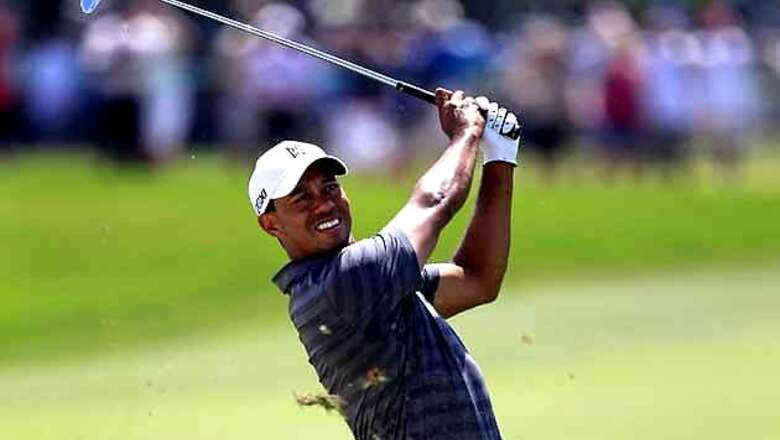
views
San Francisco: With former world number one Tiger Woods seemingly back to his best, and defending champion Rory McIlroy not far off, this week's U.S. Open at the Olympic Club has whetted the appetite of fans and players alike.
A host of other in-form players can lay claim to being genuine contenders for the year's second major, though an unpredictable winner is also likely given Olympic's uncanny habit of delivering the unexpected in past Opens staged here.
Jack Fleck, ironically using Hogan clubs, upstaged tournament favorite Ben Hogan in 1955, Billy Casper prospered from Arnold Palmer's late collapse in 1966 and the plodding Scott Simpson dashed Tom Watson's hopes by one shot in 1987.
In 1998, the popular Payne Stewart seemed to be on track for a third major title when leading by four strokes going into the final round but his bid was derailed as Lee Janzen stormed back to victory after falling seven behind.
On all four occasions, the third-round leader at Olympic was denied and there is every chance history could repeat itself this week as the game's leading players vie for supremacy. Woods and McIlroy are capable of electrifying the galleries with their power and precision and both are itching to return to the major winner's circle in the championship widely accepted as the most grueling of all.
Long-hitting American Dustin Johnson completed his U.S. Open preparations by winning his sixth PGA Tour title at the St. Jude Classic on Sunday, a day after Briton Lee Westwood had clinched his 22nd European Tour victory at the Scandinavian Masters.
Other likely candidates for success this week include world number one Luke Donald, fellow Briton Justin Rose and Americans Phil Mickelson, Hunter Mahan, Matt Kuchar and Masters champion Bubba Watson.
PRECISE DEMANDS
It has been four long years since Woods won the most recent of his 14 majors, in a playoff for the 2008 U.S. Open, and he knows time is perhaps not on his side as he tries to hunt down the record 18 piled up by golfing great Jack Nicklaus. While his form has come in fits and starts this year, Woods issued a timely U.S. Open warning to his rivals with his remarkable two-shot victory at the Memorial tournament two weeks ago in Dublin, Ohio.
"I'm excited because of the way I hit the golf ball. Every shot was exactly the shape, the trajectory, the distance control. I had it all, shape off tees, whatever club I wanted to hit, I could hit. That was fun to have it when I needed it," said Woods.
Woods, who tied for 18th at the 1998 U.S. Open, is well aware of the demands on precise ball-striking made by Olympic's heavily tree-lined Lake Course and its tilting dogleg fairways.
"You can look at the history of guys who were in contention or who ended up winning there, all were wonderful drivers of the golf ball and good, solid iron players. That's what it's going to take at Olympic, more so than most U.S. Open sites," said Woods.
TRICKY FAIRWAYS
McIlroy arrived at Olympic in a reasonably positive frame of mind, having ended a run of three missed cuts around the world with a tie for seventh at the St. Jude Classic on Sunday.
"I felt pretty good," said the 23-year-old Northern Irishman after squandering a chance of victory with a double-bogey on the final hole.
"
I had a great chance to win this week, and it didn't quite happen. But I can take a lot of positives from this week. I feel like I'm well prepared going into the U.S. Open," said McIlroy.
McIlroy, who won his third PGA Tour title at the Honda Classic in March, romped to a stunning eight-shot victory in last year's U.S. Open on a rain-softened Congressional layout. This week, though, the players are likely to face a more typical U.S. Open challenge with firm, fast-running conditions at a venue where the fairways are tricky to hit and the greens are small.
"We're trying to make it the toughest test of the year. In particular here, it really helps to be able to maneuver your ball both right-to-left and left-to-right," said Mike Davis, United States Golf Association's executive director .
While the Lake Course offers a back nine where players are able to pick up strokes, the first six holes constitute possibly the toughest start to any major championship.

















Comments
0 comment